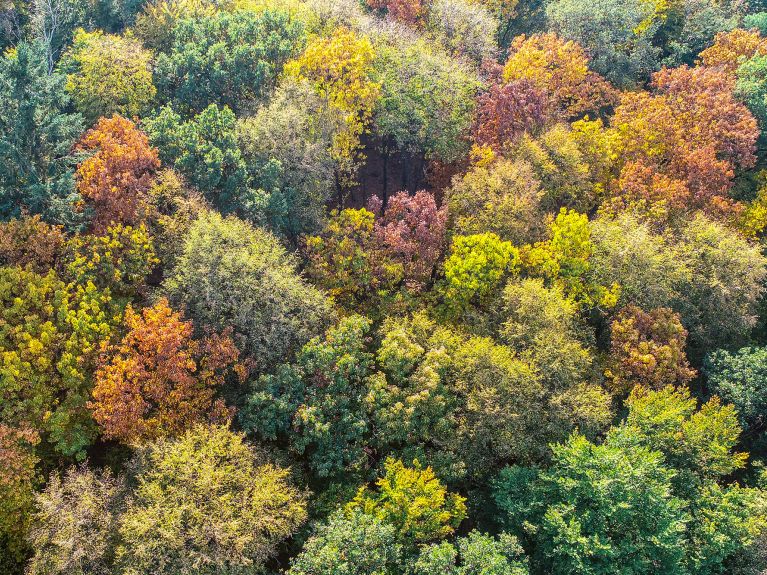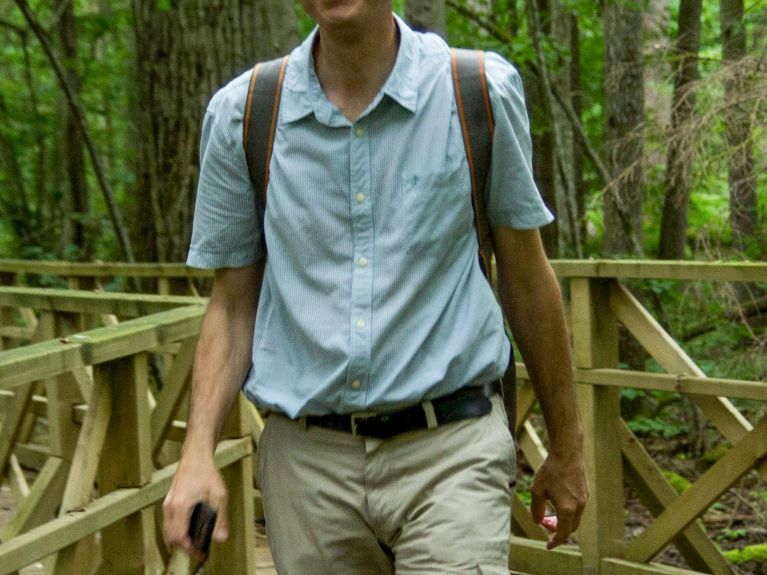Can the forest save the climate?
In the climate debate, more and more emphasis is being placed on the forest as a CO2 storage pool. How great is the potential? A German scientist has the facts.

Dr. Lindner, a study conducted by ETH Zürich caused a stir recently by indicating that the world-wide climate change mitigation goals could be reached through forest restoration alone. Is that realistic?
No, it’s not realistic. Even if forest restoration could be achieved to anything near the extent outlined it would take too long. We have to reduce emissions as quickly as possible, or we will not reach the climate change mitigation goals stipulated in the Paris Agreement. Forest restoration and other climate change mitigation strategies through forest use can make a contribution, but only in connection with other emission reduction measures. It is in particular vital to conserve existing forests, to adapt them to the already happening climate change and making them more resilient to diverse biotic and abiotic disturbances through bark beetles or forest fires.

In India 220 million trees are said to have been planted in one day, and even 350 million in Ethiopia. Would a comparable initiative be conceivable in Germany?
Our forests have strongly expanded over the last 150 years and cannot be compared in an ecological sense to the barren landscapes that were extensively planted with conifers after World War II. A further increase in the proportion of forest is not desired in many German federal states, and in those places were the proportion of forest is lower than average the land is intensively used in other ways. That’s why in Germany the issue currently isn’t one of afforestation to increase the forest cover, but of restoring forests that have suffered damage. In many locations this does not require planting new trees, because the next generation of trees has already begun to grow beneath the old trees. Where this isn’t the case we will need to plant trees. We are also looking at planting millions of seedlings – but not hundreds of millions per day. What is important is that we select the right tree species, are able to make them available in a sufficient volume, and that they are then planted in the proper way.
Importing countries also bear responsibility for the loss of forests in the tropics
Brazil shows a different reality. What would we need on an international level in order to do justice to the forest as a way of binding CO2?
Germany together with the other importing countries certainly also has a responsibility for forest loss in Brazil or in the Congo Basin in Africa, where intact tropical forests are being cleared so that the land can be used for agriculture or grazing. The first priority in every case should be the protection of existing forests, for example through strict consumer politics and the banning of products that advance deforestation such as palm oil and soybean. The second focus should be on limiting or better still preventing forest losses through disturbances. Much more can be done in terms of prevention here, which will be incomparably less expensive and more effective than the limitation of damage once there are large-scale fires or insect infestations. We also need to keep the entire system in sight and not just the existing forests. Building with wood holds great potential, as it binds CO2 and prevents CO2 emissions in those cases were wood is used instead of steel or cement.
Interview: Martin Orth
*Dr. Marcus Lindner is Principal Scientist at the European Forest Institute (EFI) in Bonn. The EFI headquarters are in Joensuu (Finland). The international organization sees itself as the think tank of forestry and works at the intersection of science, politics and practice.
You would like to receive regular information about Germany?
Subscribe here:


